Formative assessment has its most transformative impact on deeper learning and student agency when students learn how to engage in the formative assessment process themselves: setting personal learning goals, defining what success looks like, collecting and analyzing evidence (of their own and peers’ learning status), responding through feedback and determining next steps for their learning. These processes, which formative assessment fosters, are the hallmarks of student agency and self-regulated learning. The resources below support teachers to make the shift from formative assessment focused on the teacher role, to formative assessment focused on the student role.
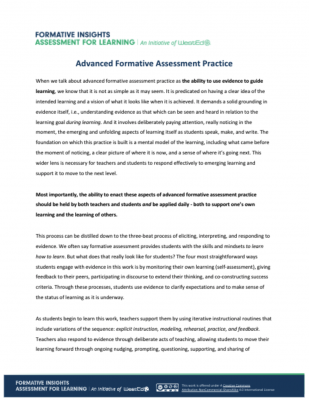
Advanced Formative Assessment Practice
This brief resource highlights what changes in advanced formative assessment practice, outlining shifts in teacher practice, classroom culture, feedback and peer dialogue.
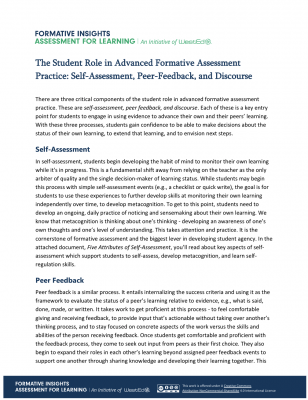
The Student Role in Advanced Formative Assessment Practice
To explore evidence of learning, students should engage in peer feedback, self-assessment and academic discourse daily. This reading helps teachers consider key aspects and outcomes for these 3 instructional routines.
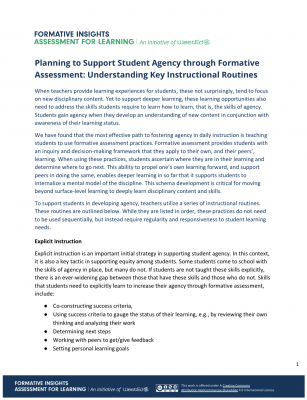
Planning to Support Student Agency through Formative Assessment: Understanding Key Instructional Routines
Teaching agency skills is not a common practice. This reading outlines specific steps teachers engage students in to use evidence to support their learning during routines of self-assessment, peer feedback and discourse.
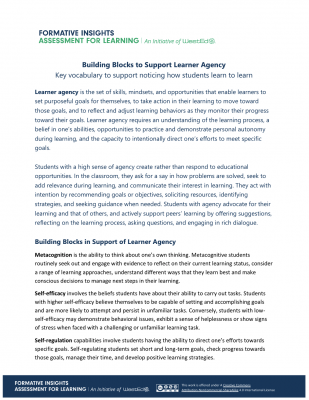
Building Blocks to Support Learner Agency
Many see learner agency as a fixed characteristic, either students have it or they don’t. This reading defines agency and details metacognition and self-regulation skills that help students strengthen their agency.
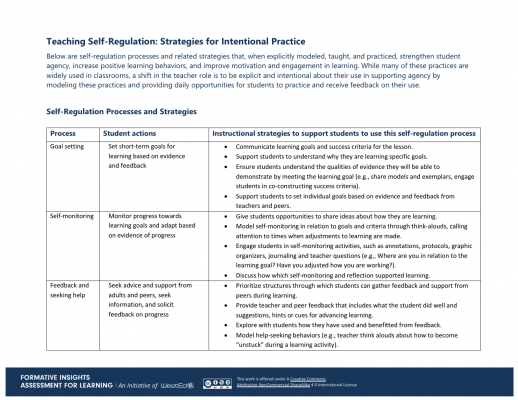
Teaching Self-Regulation Practices for Intentional Practice
Teaching students skills that are foundational to developing learner agency involves many aspects. This table outlines 8 processes of self-regulation and identifies strategies teachers can use to support each process.
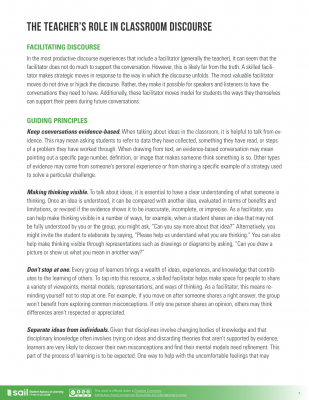
The Teacher’s Role in Classroom Discourse
Effectively facilitating discourse involves creating daily routines that offer extended opportunities for evidence of student knowledge and thinking to emerge during learning.
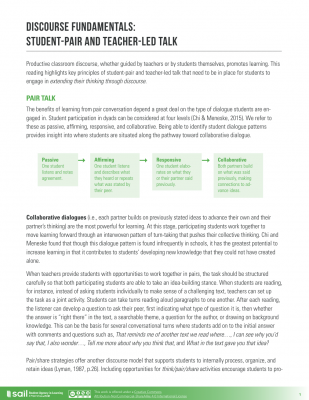
Discourse Fundamentals
Through 4 guiding principles and key structures for discourse, this introductory reading supports teachers in extending student thinking and creating structures for evidence to become visible during learning.
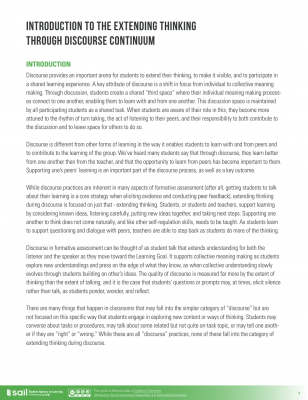
Introduction to the Extended Thinking Through Discourse Continuum
This document defines discourse, and outlines evidence of discourse practices for teachers and students. The continuum outlines the progression of practices in using discourse to deepen understanding of academic content.

